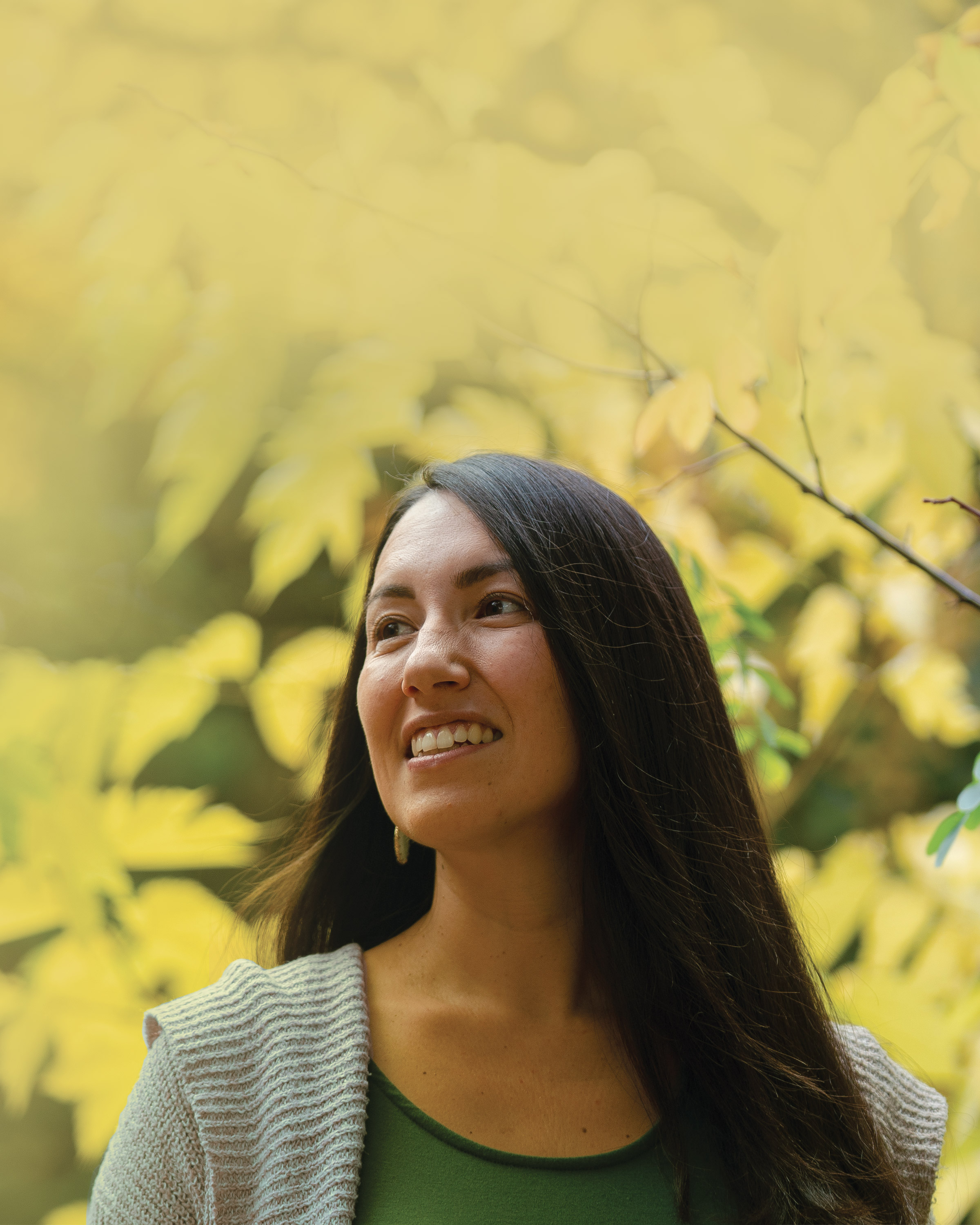Expert ideas to improve your emotional health Expert ideas to improve your emotional health Happy hints: Expert ideas to improve your emotional health
Recommendations from social psychologist Tabitha Kirkland, whose research explores strategies that nurture our happiness.
By UW Magazine Staff | Photos by Jovelle Tamayo | December 2019

This fall, Tabitha Kirkland, a social psychologist, taught a freshman colloquium on happiness. She explains her students that when psychology became a field of scientific study in the 1800s, it focused on dysfunction and disorder. More than a century later, psychologists began to explore mental well-being. The modern field of positive psychology explores what causes us to flourish, be happier and more fulfilled. In her classrooms, Kirkland explores which strategies nurture our own happiness and emotional health. Here is what she recommends:
Live close to work
People pursue a lot of things in search of happiness. Some want a big house—though it comes with a long commute—or they take a job with long hours to earn lots of money. But those things don’t make us happy. A long commute, for example, is known to decrease happiness. Studies show that for every 15 minutes added to your commute, there’s a measurable drop in your happiness. And then you’re hardly at home to enjoy it.
Choose experience over objects
Any sort of fancy toy that we go after doesn’t make us happy. Sure, we experience some initial joy when we first obtain it, but then we get used to it. And we’re back where we started. Spending money on experiences is more effective at creating happiness. Research shows that experiences have a lasting benefit.
Spend less time on the phone
In the service of convenience, we do all these things like sending texts and buying goods that does away with human connection. But it’s something we need. If we’re always on the phone, we miss out on a lot of the human face-to-face connections, which we know are restorative to our bodies.
Temporarily feeling down?
Try reaching out to other people and try going outside. Social connection is a huge theme in my happiness class. One thing you can do is talk to a friend, neighbor or coworker and just make contact, get out of your own head and your own problems, maybe even help someone else. And go outside, because there’s something really special about being in nature and finding things that give us broader vistas.
What about people who say happiness is overrated?
There are lots of ways to find meaning in life. Some people equate happiness with hedonism. But there are many people who go through experiences that aren’t fun or pleasant, like protesting for a cause or parenting. Yet these add richness to life. It means thinking about happiness as something more than just positive emotions. It could come from pursuing meaning.